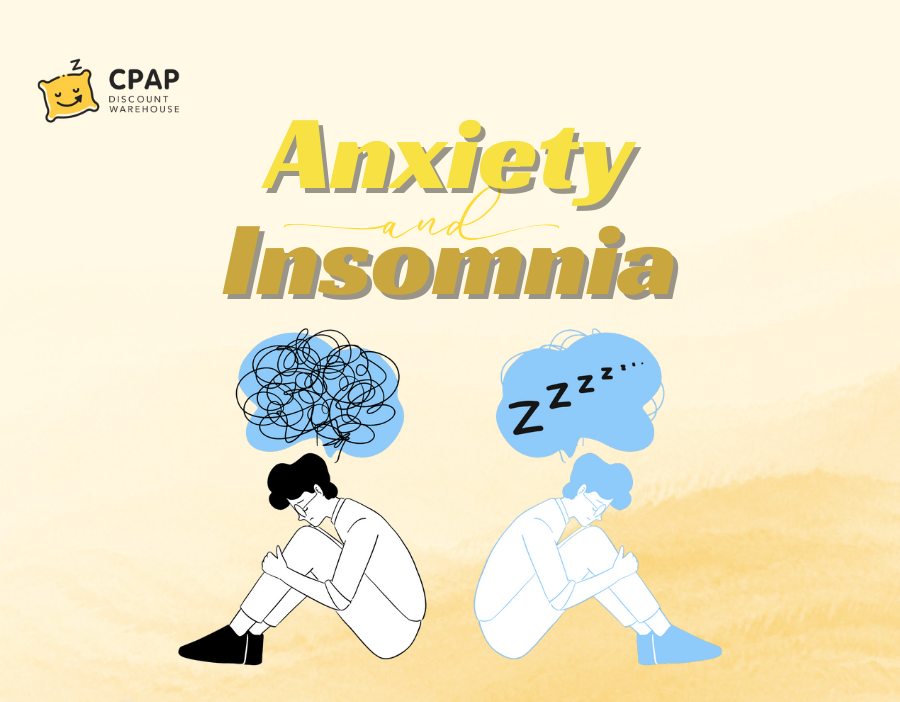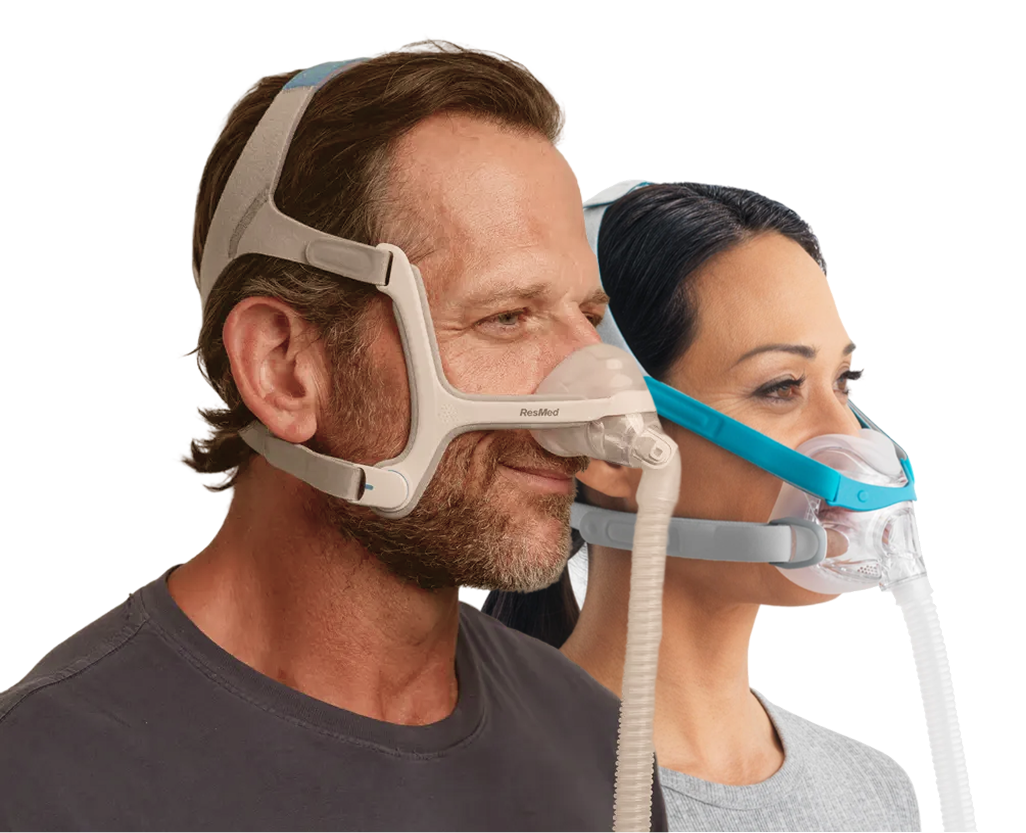As anxiety levels rise, the body struggles to relax, making it difficult to fall asleep or stay asleep. Because quality rest is essential for mental wellbeing, anxiety and insomnia often reinforce each other, creating a vicious cycle that heightens stress and disrupts emotional balance as well as physical health. For readers seeking practical solutions and reliable sleep support, CPAP Discount Warehouse offers expert guidance along with a wide range of sleep health products designed to improve nightly rest.
What Is It Called When You Can’t Sleep Due to Anxiety?
If you can't sleep because you're worrying or thinking too much, it's called insomnia linked to anxiety disorders. Sometimes, doctors call it sleep anxiety or insomnia associated with generalized anxiety disorder, also known as GAD.
There are two main types to differentiate. Acute insomnia is a temporary condition that can be caused by sudden stress, a sudden life incident, or brief periods of anxiety. Chronic insomnia lasts weeks or months. People usually think of it as a problem sleeping that happens at least three nights a week for three or more months. It is mostly due to long-term mental health problems, such as depression anxiety and insomnia.

Sleep Anxiety Symptoms
Sleep anxiety can manifest either psychologically or physically, the common symptoms include:
+ Feelings of being overwhelmed.
+ Panic at bedtime
+ Irritability.
+ Nervousness.
+ Restlessness.
+Mind racing can't sleep anxiety
When anxiety attack during sleep, often described as can’t sleep stress and anxiety, you might also feel a rush of anxiety when falling asleep and emotional changes such as overwhelm, impaired concentration.
Physical effects of anxiety before bed may include:
+ Shallow breathing
+ A rapid heart rate
+ Sweating.
+ Tense muscles.
+ Trembling.
In more severe cases, sleep anxiety can trigger nocturnal panic attacks. These are intense bursts of fear that occur during the night, often waking a person suddenly and leaving them shaken.
What causes insomnia in females?
Insomnia in females is often linked to hormonal fluctuations happening throughout the menstrual cycle. Many females feel more anxious and find themselves unable to sleep before their period, which is the time when hormonal levels drop, mainly progesterone and estrogen. This alteration may increase mood swings, cause premenstrual syndrome, and disturb the calm required to sleep well.
Restfulness may also get attacked by hormonal changes during ovulation. Increased estrogen and LH can create heightened energy levels, nervousness, and spikes in anxiety that keep the body from entering into its natural sleep-wake rhythm. For some, this causes them to lay awake with an active mind, while others find themselves either partially or fully awake at some points during the night.
In large part, hormonal changes do govern female behavior related to sleep. With a little added stress or anxiety, the aforementioned alterations enhance the symptoms of insomnia and draw these poor sleep spells further into a vicious cycle temporally linked with some phases of the menstrual cycle.

Anxiety and insomnia treatment
How to beat insomnia and anxiety?
The treatment of anxiety-induced insomnia simultaneously requires psychological support with lifestyle changes. Some of the most effective procedures in clinical practice is cognitive-bahavioral therapy for insomnia, (CBT-I). This therapy helps the person recognize his or her dysfunctional thoughts about sleep, restructure anxious thinking, and adopt healthier behaviors to aid relaxation. Using therapy, it is possible to alleviate anxiety somewhat through meditation, mindfulness, or exercise-a combination that can reduce nighttime anxiety and improve sleep.
Natural Remedies for Insomnia and Anxiety
As for natural remedies, one of the prime considerations is keeping good sleep hygiene. The bed and waking up time should always be consistent; it also helps if the bedroom environment is cooled and dark, along with a ban on electronic devices in bed. Foods containing magnesium, tryptophan, and complex carbohydrates will calm the nerves and enhance the ability to have deep sleep. Another feature used by a few is the deep sleep music to ease mental tension so that a relaxing mood gets generated convincing a person to sleep.
When natural remedies and lifestyle changes are not enough, medical treatment may be considered. Doctors often prescribe SSRIs to manage underlying anxiety disorders, while medications such as Seroquel or other sedative drugs may be used in severe cases of chronic insomnia. Acupuncture is another complementary therapy that has been reported to reduce both anxiety and sleep problems for some individuals. Choosing between the best drug, the best medicine, or the best treatment depends on each person’s unique health profile, making professional guidance essential for safe and effective care.

When Professional Help is Needed
If anxiety and insomnia run through the weeks or begin compromising one's everyday living, it becomes imperative to seek professional help. One may approach a sleep clinic or a licensed therapist who will carry out thorough investigations and rule out causes, then suggest best-evidence treatments: CBT-i, medication, or a combination of both.
>>> How long is a sleep cycle?
Conclusion
Anxiety disorder and insomnia are closely related and keep one another running in a loop whereby worry impedes sleep while sleeplessness builds anxiety. Understanding the symptoms and causes and treatment interventions represents the initial step toward breaking the loop. Lifestyle changes and natural remedies can be of convenience for those who experience mild symptoms but professional care must not be ignored for those with persistent or severe symptoms. Seeking help is not a sign of weakness but a proactive step toward better mental health and restorative sleep. Readers are encouraged to explore trusted resources and consult healthcare providers for the best support.






